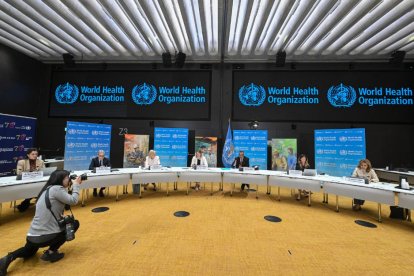WHO warns potentially deadly avian influenza strain can be transmitted to humans
The institution warns that the H5N1 strain is adapting and could be transmitted to humans. For now, there are no reported cases.

(AFP)
(AFP/VOZ MEDIA) The World Health Organization (WHO) on Thursday expressed "enormous concern" over the increasing spread of the H5N1 strain of avian flu to other species, including humans.
Jeremy Farrar, scientific director of the U.N. health agency, said at a press conference in Geneva, "This remains, I think, an enormous concern."
The main concern is that the H5N1 virus, which has "an extraordinarily high mortality rate" in people infected through contact with animals, is adapting to transmit between humans.
Between early 2023 and April 1, 2024, WHO reported 889 human cases of avian influenza in 23 countries. 463 people died, making for a mortality rate of 52%.
Currently, there are no recorded cases of human-to-human transmission of H5N1.
According to the WHO scientist, strain A (H5N1) has become "a global zoonotic animal pandemic."
According to Farrar, "the great concern" is that by "infecting ducks and chickens and then increasingly mammals, that virus now evolves" and then develops "the capacity to go from human to human.”
One case that generated concern involved a person who was infected with avian flu by a dairy cow in Texas, United States.
When "you come into the mammalian population, then you’re getting closer to humans," Farrar said. "It's a real concern."
The head of the U.N. science division called for strengthened surveillance and recording and explained that "it's very important" to know how many human infections are happening, as he said that's where adaptation of the virus can occur.
"It sounds tragic to say it, but if I get infected with H5N1 and I die. That's the end of it. But, if I circulate in my community and infect someone else, then that's where the cycle begins," he said.
Farrar said efforts are underway to develop vaccines and treatments for H5N1 and stressed the need to ensure that regional and national health authorities around the world are able to diagnose it.
RECOMMENDATION





















